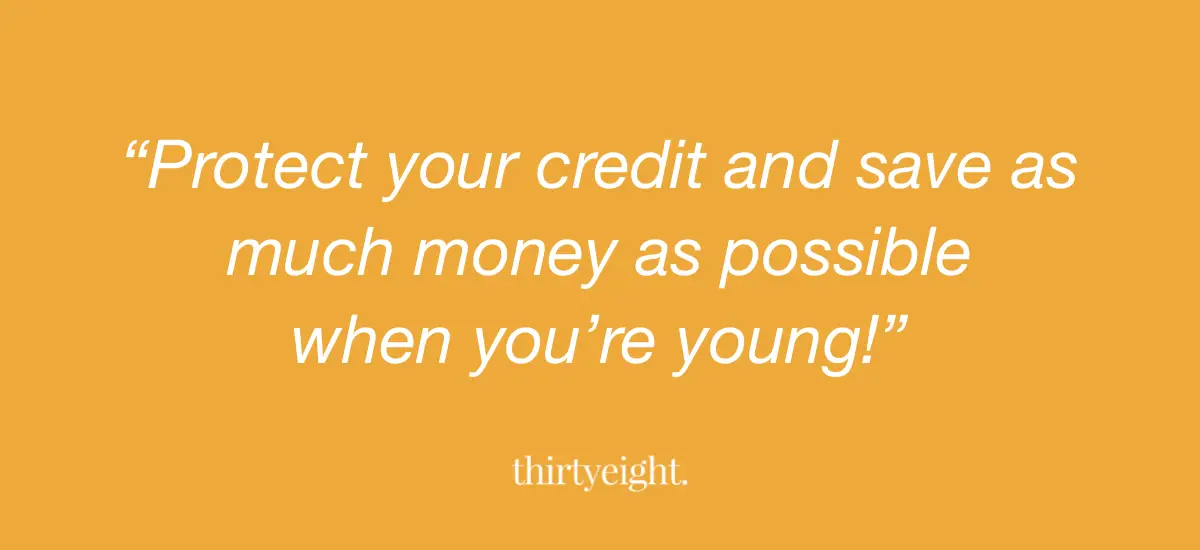Many thanks to Chris from adultingdigest.com for this guest post! Be sure to check out his blog information down below! If you are interested in guest posting on this blog, click here!
What does your financial picture look like?
Whether you’re getting ready to venture out on your own for the first time or you’re looking for ways to protect your personal information as you explore the world around you, there are several important things you can do to keep your money safe and set yourself up for a strong financial future.
To learn more, read on!
1. Avoid Unnecessary Risks
According to Experian, members of Generation Z—those born between the years of 1995 and 2015—are continuously putting themselves at risk of falling victim to identity theft. Even something as seemingly innocent as taking an online quiz may put you at risk—especially since these quizzes gather personal information that could be used to hack into online accounts.
Other things like downloading an illegitimate mobile app to a smartphone or making purchases from fly-by-night websites could put some Gen Zers at risk of having their personal information stolen from them.
2. Keep Your Personal Details Safe
The negative effects of identity theft are long-lasting, which is why it’s important that you keep your personal information safe right from the start. To protect yourself from identity theft when you’re away from home, for instance, CNBC says to keep no more than two credit cards in your wallet at any time. However, you’ll protect yourself even further if you carry only the card you plan on using.
Other items to remove from your wallet include the following:
- Social Security cards
- Checks (if you plan on writing a check, keep one on you)
- ATM receipts
- Receipts from gas stations
- Bank deposit slips
After removing these items from your wallet, the Federal Trade Commission (FTC) recommends storing them in a secure location such as a home safe or safe deposit box—especially if you live with roommates.
Then, shred any old or unwanted receipts, checks, mailings, forms, and expired cards!
When shopping online, you’ll protect yourself from identity theft if you use a credit card—rather than a debit card—to make purchases. Additionally, don’t complete any type of financial transaction while using a public Wi-Fi connection—even if you’re simply shopping online or checking your bank balance.
If you happen to notice unusual activity on your accounts, that could mean you’ve fallen victim to identity theft. If so, take steps immediately! Report it to the financial institution, set a fraud alert with credit reporting agencies, and change all your account passwords.
3. Act Quickly if You Lose Your Purse or Wallet
Direct theft of your purse, wallet, or their contents are a more obvious problem, but no less detrimental.
Again, it’s imperative to act fast.
You’ll need to contact your bank and credit card companies—and you’ll need to file a police report with your local police station. Since the thief will likely have access to your home address, you may choose to change your locks if your keys were lost along with your purse or wallet.
Next, contact Experian, Equifax, or Transunion to place a 90-day fraud alert on your credit report.
Doing so makes it more difficult for thieves to open new accounts in your name. After 90 days, you can extend the alert if you present a copy of the police report.
4. Protect Yourself from Criminals
In addition to protecting your personal information from thieves, there are other proactive measures to keep you safe as you venture out into the world for the first time.
Whether you’re walking home from a party, hanging out on campus, or going on a date, it’s important to keep the following safety tips in mind:
- Lock your doors whenever you leave your home or car, even if you’re only leaving for a minute
- Be mindful of the way you walk and behave to avoid being targeted by criminals
- Keep a personal alarm on you to deter thieves and other criminals
- If you’re in college, learn about the school’s safety programs and procedures
- Date safely and mindfully, keeping your connections close and learning as much as you can about new dates
5. It’s Never too Early to Save for the Future
As a young adult, one of the last things on your mind may be buying a home or saving money for the future.
However, you’ll set yourself up for a stronger financial future if you protect your credit and save as much money as possible when you’re young.
Since buying a house is one of the best investments you can make as a young adult, it’s only practical that you should start saving for a down payment on a home as soon as you begin working and earning money.
However, saving enough money for a down payment on a home takes years of hard work and dedication—and the earlier you can start, the better off you’ll be once you’re ready for homeownership.
As you begin saving for the future, it’s important to check your credit score to see where there’s room for improvement.
If you have too little credit, you can build credit by opening a new credit card, paying off your card balances as quickly as possible, and paying your utility and cell phone bills in a timely manner.
After checking your credit score, think about the things you can do now to save money for a down payment on your future home. To save money, you may be able to work extra hours, follow a strict budget, and eliminate any unnecessary expenses from your routine—such as paying for your morning coffee or dining out at restaurants.
A short-term Certificate of Deposit (CD) or Money Market Fund may also help you to reach your goals more quickly.
6. Safe and Strong Now and Down the Road
From learning how to protect your personal information to saving money for a down payment on your first home, there are many things you can do now to set yourself up for a stronger financial future. Protect yourself day-to-day and embrace forward-thinking finances. With a solid start, your future will be brilliant!
Image via Unsplash
About the Author
Chris from Adultingdigest.com
Adulting Digest is a blog to help others learn about money, credit, savings and more! On the blog, he provides personal examples to help readers learn about finances and how to make wise money decisions!
Check out the blog here!


